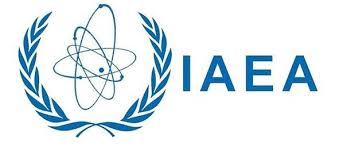Aircraft firefighting training programs
The first company in the training programs for extinguishing aircraft fires for the public and private sectors in cooperation with

Ajaweed Al-Khair Holding Company is a Libyan company that falls under the Libyan Business Law. It is affiliated with several companies, namely: Al-Imtiaz Company for Renewable Energy and Modern Technologies, Asr Al-Daqqa Oil Services Company, Al-Raya Al-Bayda Company for Firefighting Equipment and Safety Supplies, Al-Fateez Company for Pharmaceuticals and Medical Equipment, and Source of Light for Tourism Services and tourism investment.
I am pleased to welcome you to the website of Ajaweed Al-Khair Holding Company. By browsing our website, you will be able to learn about our history and the most prominent works, and to look closely at the values that our institutions have pursued since its establishment in 1998 AD, which stemmed from our firm commitment to support and develop the Libyan economy, and from this standpoint, we harness all Our capabilities to support human and spatial development.
And here we are today, we continue to set standards of leadership and distinction, planning an approach “the essence of sustainability and its basis is development and growth to continue the march of progress and success. The path towards success is an endless journey, and the secret of this success is persistence on the goal. Our goal was to set a clear vision for our future and develop our present. Today, praise be to God, we are agents of major and international institutions and companies, and representatives of major international universities, and we have strategic agreements with most of the state’s ministries and public bodies.
Ajaweed Al-Khair Holding Company is an endless success story…..thanks to God and then thanks to the successful management
Mr. Fayez Hmeida (Chairman of Board of Directors)

The first company in the training programs for extinguishing aircraft fires for the public and private sectors in cooperation with
The first company in the training programs for extinguishing aircraft fires for the public and private sectors in cooperation with
The first company in the training programs for extinguishing aircraft fires for the public and private sectors in cooperation with
The first company in the training programs for extinguishing aircraft fires for the public and private sectors in cooperation with

In the field of the peaceful use of atomic energy, the first Arab company in the peaceful use of atomic energy . in the field of training and development. The first company in the training programs for extinguishing aircraft fires for the public and private sectors in cooperation with the Aviation Authority. Training and development in the oil field.

The Statute of the International Atomic Energy Agency was adopted in 1956 by the conference concerning the Statute of the International Atomic Energy Agency held at the United Nations headquarters.

The Arab Atomic Energy Agency is an Arab scientific organization operating within the framework of the Arab League, focusing on nuclear sciences and their peaceful applications.

The Tajoura Nuclear Research Center is a specialized research center in the field of peaceful applications of nuclear energy, opened in 1982, and is considered one of the largest research centers in Libya.
